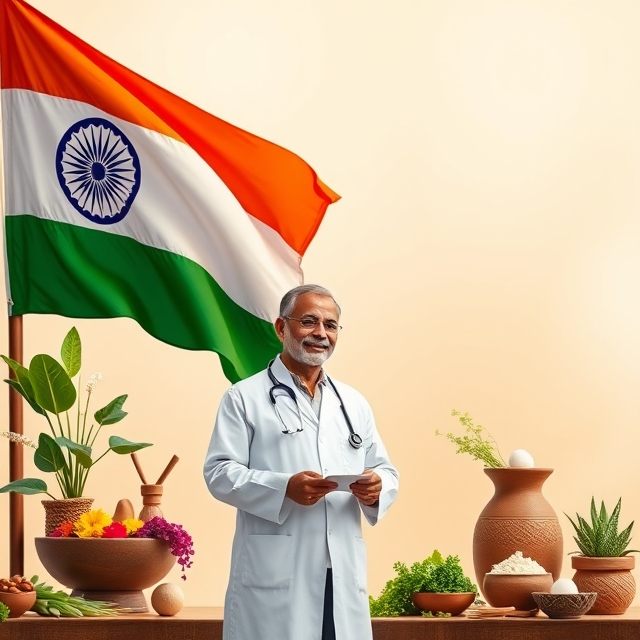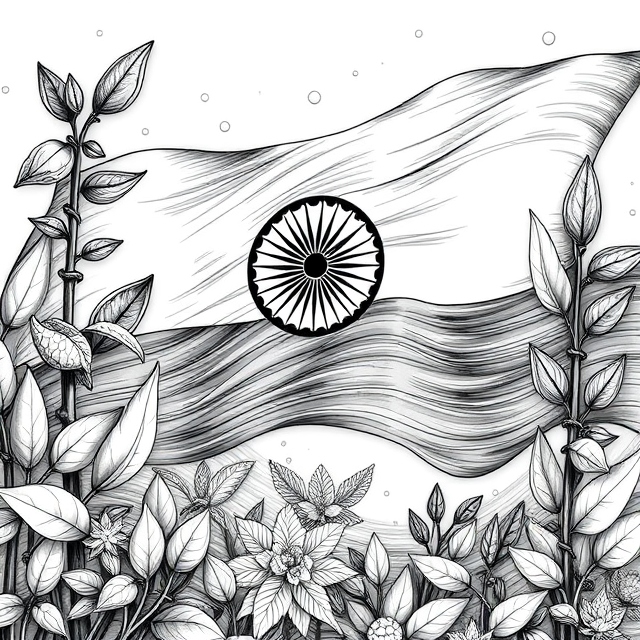
- Ayurveda as Soft Power: India’s strategic promotion of Ayurveda highlights its potential as a global soft power tool, emphasizing cultural heritage and holistic health.
- Global Integration and Growth: Initiatives like international collaborations, quality controls, and educational outreach have positioned Ayurveda in the expanding global wellness market, boosting exports and medical tourism.
- Ayurveda in Diplomacy: India leveraged platforms like the G20 presidency to showcase Ayurveda’s economic potential and relevance in global healthcare systems, enhancing its international influence.
India’s long-standing Ayurvedic heritage has become a valuable tool for soft power diplomacy, increasing the country’s cultural clout internationally. These customs, which date back thousands of years, represent India’s traditional values and offer a unique fusion of mental, spiritual, and physical health. Over the years, India has made strategic use of Ayurveda to improve holistic health, foster foreign connections, and showcase its cultural legacy internationally.
Ayurveda, known as the “science of life,” is an integral component of Indian cultural heritage. With a history spanning over 5,000 years, Ayurveda adopts a holistic approach to health that emphasizes the balance of the mind, body, and spirit. This is achieved through various practices, including herbal remedies, dietary modifications, and meditation. Ayurveda extends beyond conventional healthcare solutions; it is deeply intertwined with India’s spiritual and philosophical traditions, bringing out its cultural importance.

Ayurveda’s Economic and Cultural Influence
The global wellness market is booming, valued at a staggering $4.2 trillion in 2017 and expanding at an impressive annual rate of 6.4%. This surge presents a golden opportunity for Ayurveda to shine. As healthcare expenses continue to climb in developed countries, more people are turning to natural and preventive healthcare solutions. Ayurveda’s holistic approach to well-being resonates perfectly with this growing demand, positioning it as a compelling alternative that many are eager to embrace.
India has become a major producer of herbal medicines, cosmetics, and dietary supplements by successfully capitalizing on the growing demand for Ayurvedic items worldwide. With a 2022 valuation of $18 billion, the Ayurvedic pharmaceutical business is expected to rise significantly in the near future. Notably, the top importers of these goods are the US, Germany, and Japan, underscoring the growing popularity of Ayurveda throughout the world. In addition to highlighting the growing value of conventional methods, this trend presents encouraging prospects for additional innovation and market expansion.
The growing popularity of Ayurveda has significantly boosted medical tourism in India, attracting thousands of international patients each year for its healing treatments. Wellness centres in regions like Kerala, Rishikesh, and Goa have become vibrant destinations for those seeking holistic healing experiences. This influx of visitors not only enhances India’s economy but also fosters meaningful cultural exchange between travellers and local communities.
Soft Power Strategies
The Ministry of AYUSH, established in 2014, has made significant strides in promoting Ayurveda globally through innovative soft power strategies. A key initiative involves fostering international collaborations, leading to successful agreements with countries such as the United States, Japan, and Germany. These partnerships enhance research and development in Ayurvedic medicine, facilitating valuable knowledge exchange, encouraging evidence-based practices, and strengthening global trust in Ayurveda. Education and training initiatives have gained significant momentum, leading to the establishment of specialized universities and training centres around the world focused on cultivating skilled Ayurvedic practitioners. By implementing standardized curricula, these institutions promote consistency and quality in education, ultimately enhancing the global credibility and acceptance of Ayurveda. The Indian government has implemented stringent quality control measures and certification programs to ensure the safety and efficacy of Ayurvedic products, as well as their compliance with international standards. Additionally, digital outreach has proven to be a transformative instrument, with social media platforms significantly enhancing awareness of the advantages of Ayurveda and showcasing successful case studies, thereby increasing its global appeal.

India has actively sought to integrate Ayurveda into global healthcare frameworks by hosting international conferences, exhibitions, and collaborative research efforts that showcase its holistic approach to health and wellness. These multifaceted strategies reflect the Ministry’s dedication to positioning Ayurveda as a pivotal element of global holistic healthcare, promoting it as a credible and scientifically supported alternative for addressing contemporary health challenges.
Ayurveda at the G20 Presidency

India’s G20 presidency in 2023 became a powerful platform for showcasing its soft power strategies. By integrating Ayurvedic elements into the delegate experience—such as wellness sessions, Ayurvedic cuisine, and workshops—India proudly highlighted its rich cultural heritage while reaffirming its dedication to promoting global well-being. The event effectively showcased the significant economic potential of Ayurveda. Engaging discussions centred around the integration of traditional medicine into global healthcare systems underscored its potential to help combat escalating healthcare costs and lifestyle-related diseases. These conversations positioned India as a frontrunner in providing holistic health solutions.
The Future of Ayurveda as Soft Power
India’s strategic advancement of Ayurveda possesses the capacity to significantly enhance the country’s global standing. In light of increasing healthcare expenditures and the prevalence of lifestyle-related diseases, the demand for comprehensive health solutions is expected to escalate. By integrating Ayurveda into the framework of global wellness initiatives, India can bolster its soft power and make a substantial contribution to improving global health outcomes.
India’s initiatives to promote Ayurveda showcase its dedication to fostering a more interconnected and harmonious global community. These time-honoured practices not only represent India’s vibrant cultural heritage but also embody a vision for a future founded on shared principles of health, understanding, and holistic awareness.
References:
- Ministry of Ayush. (n.d.). International Activities. Central Council for Research in Ayurvedic Sciences. Retrieved from https://ccras.nic.in/international-activities/
- Ministry of Ayush. (n.d.). Scheme for Promotion of International Cooperation for Ayush. Press Information Bureau. Retrieved from https://pib.gov.in/PressReleaseIframePage.aspx?PRID=2085328
- Ministry of Ayush. (n.d.). Initiatives and achievements of the Ministry of Ayush towards global acceptance of Ayurveda. International Journal of Ayurveda Research. Retrieved from https://journals.lww.com/ijar/fulltext/2022/01000/initiatives_and_achievements_of_the_ministry_of.2.aspx
- Ministry of Ayush. (n.d.). Advancing Ayurveda Education: National Commission for. International Journal of Ayurveda Research. Retrieved from https://journals.lww.com/ijar/fulltext/2024/05010/advancing_ayurveda_education__national_commission.8.aspx
- Ministry of Ayush. (n.d.). New WHO and Ministry of AYUSH, Republic of India agreement signed to advance traditional, complementary, and integrative medicine. World Health Organization. Retrieved from https://www.who.int/news/item/17-11-2023-new-who-and-ministry-of-ayush–republic-of-india-agreement-signed-to-advance-traditional–complementary–and-integrative-medicine
- Ministry of Ayush. (n.d.). AYUSH Research Portal. National Portal of India. Retrieved from https://www.india.gov.in/ayush-research-portal
- Ministry of Ayush. (n.d.). Research Collaborations with Foreign Countries. Press Information Bureau. Retrieved from https://pib.gov.in/PressReleasePage.aspx?PRID=1694455
- Ministry of Ayush. (n.d.). Overview Of Evaluation Strategies in Ayurveda Education. African Journal of Biomedical Research. Retrieved from https://www.africanjournalofbiomedicalresearch.com/index.php/AJBR/article/download/2359/1967/4313
Dr. Muktha is a practising Ayurvedic Practitioner and Public Health Professional. Views expressed are the author’s own.
